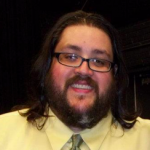Redesigning Writing Intensive Courses @ ECU
This week’s post comes from Hector Garza (Theatre and Dance), who currently chairs the Writing Across the Curriculum (WAC) Committee. Professor Garza explores several changes that the WAC Committee has been working on regarding WI courses; these changes are important in the context of the Quality Enhancement Plan: “Write Where You Belong.”
 The Writing Across the Curriculum committee has been working to create a new, more comprehensive definition of Writing Intensive courses at ECU. Our major source for inspiration in making these changes has been the work of the Quality Enhancement Plan (QEP). The “Write Where You Below” initiative is our chance to effect change in a system that has never defined student learning outcomes. As committee, we have endeavored to strengthen the WI program at ECU by redefining what “writing intensive” means at ECU. This redefinition can be seen in the new WI course proposal form that is currently in draft form. At the core of the new proposal is the adopting of the QEP’s Student Learning Outcomes (SLOs) as the official Writing Outcomes for WI courses at ECU. According to these outcomes, students will
The Writing Across the Curriculum committee has been working to create a new, more comprehensive definition of Writing Intensive courses at ECU. Our major source for inspiration in making these changes has been the work of the Quality Enhancement Plan (QEP). The “Write Where You Below” initiative is our chance to effect change in a system that has never defined student learning outcomes. As committee, we have endeavored to strengthen the WI program at ECU by redefining what “writing intensive” means at ECU. This redefinition can be seen in the new WI course proposal form that is currently in draft form. At the core of the new proposal is the adopting of the QEP’s Student Learning Outcomes (SLOs) as the official Writing Outcomes for WI courses at ECU. According to these outcomes, students will
- Use writing to investigate complex, relevant topics and address significant questions through engagement with and effective use of credible sources;
- Produce writing that reflects an awareness of context, purpose, and audience, particularly within the written genres (Including genres that integrate writing with visuals, audio or other multimodal components) of their major disciplines and/or career fields;
- Demonstrate that they understand writing as a process that can be made more effective though drafting revision;
- Proofread and edit their own writing, avoiding grammatical and mechanical errors;
- Assess and explain the major choices that they make in their writing.
This simple step goes a long way to strengthen the WI program. The models that are currently the standard for WI courses will fall by the wayside. If these changes are approved by Faculty Senate and the Chancellor later this spring, all WI courses will be expected to meet these Writing Outcomes. One benefit for faculty is that meeting the Writing Outcomes is not tied to a specific number of pages of writing, which allows for greater flexibility for faculty across different disciplines where final projects vary in length.
…
Redesigning Writing Intensive Courses @ ECU Read More »